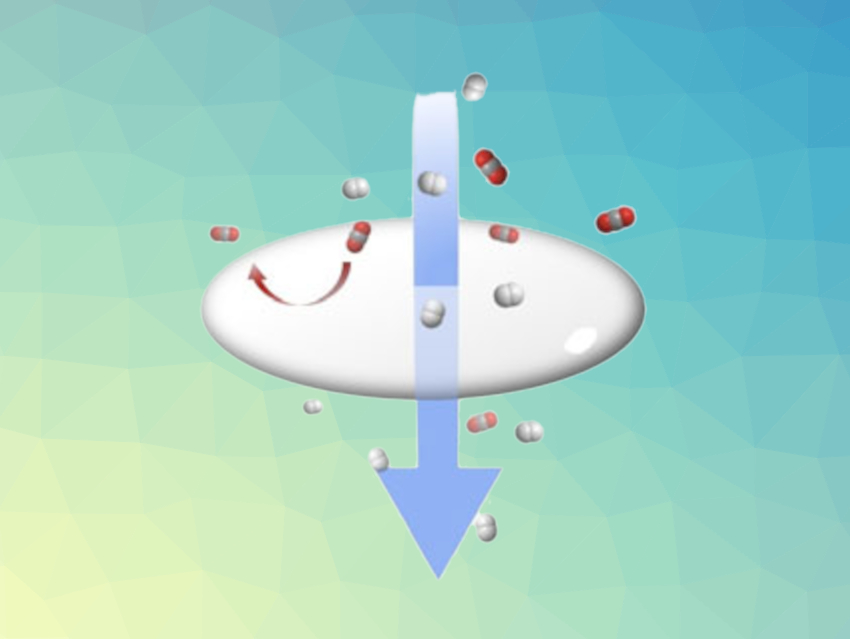Membrane-based gas separation is a promising recovery and purification technology. However, it is a challenge for membranes to combine high separation performance, ease of fabrication, and good mechanical stability. Microporous inorganic materials, such as coordination polymers (CPs), can provide high chemical and thermal stability as well as a good molecular sieving ability. However, CPs are difficult to process into free-standing single-component membranes because they are fragile and brittle. Coordination polymer glasses have the potential to address these fabrication challenges. However, their processability and performance cannot meet all requirements for high-performance separations as of yet.
Xiao Feng, Bo Wang, Beijing Institute of Technology, China, and colleagues have synthesized a series of CP glasses using a grinding approach (pictured below on the left). The four CPs were synthesized from the corresponding metal acetates (Zn, Cd, Cu, and Mn), 5,6-dimethylbenzimidazole (dmbIm), and phosphoric acid. Cooling the melted CPs from a temperature just above their melting point gave the corresponding CP glasses. The CP glasses have low vitrification temperatures as well as low viscosities. Owing to their flowability and processability, they can be fabricated into thin membranes by a hot-casting or hot-pressing method (pictured below on the right) and can be self-healed upon simple heating.
The CP glasses’ ultra-microporous cavities and suitable pores size result in an excellent molecular size-exclusive effect for H2 sieving. This work may help with designing and fabricating CP glasses with desired processability and functions and open up opportunities for industrial applications.

- Coordination Polymer Glasses with Lava and Healing Ability for High-Performance Gas Sieving,
Jie Li, Jiaming Wang, Qingqing Li, Mengxi Zhang, Jiani Li, Chao Sun, Shuai Yuan, Xiao Feng, Bo Wang,
Angew. Chem. Int. Ed. 2021.
https://doi.org/10.1002/anie.202102047




